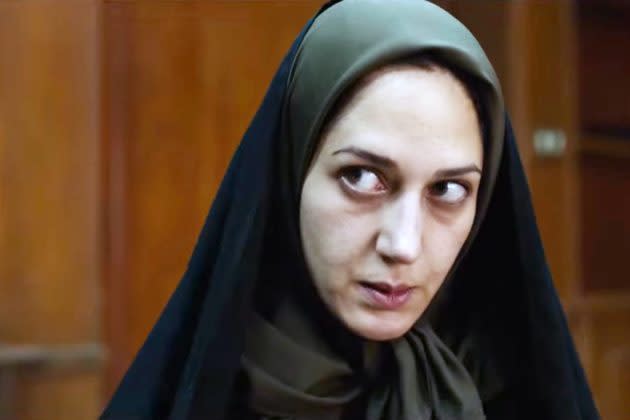Ali Abbasi, Ana Lily Amirpour on How Oscar-Shortlisted ‘Holy Spider’ is Evolving ‘As the Revolution is Evolving in Iran’ (EXCLUSIVE)
- Oops!Something went wrong.Please try again later.
- Oops!Something went wrong.Please try again later.
- Oops!Something went wrong.Please try again later.

Iranian diaspora directors Ali Abbasi and Ana Lily Amirpour have keenly followed the wave of protests sparked in Iran by the death of 22-year-old Mahsa Amini for allegedly wearing a loose hijab. The filmmakers may not be in the thick of the protests, but they’re watching with a great sense of participation.
Abbasi’s film “Holy Spider,” about a family man named Saeed who becomes a serial killer as he embarks on a religious quest to “cleanse” the holy Iranian city of Mashhad of prostitutes, could not be more timely. The boundary-pushing thriller, which is short-listed for the international feature Oscar race (having been submitted by Denmark), is about a local female journalist, played by Zar Amir-Ebrahimi, who is trying to crack the case as she grows frustrated by police misogyny and apathy toward finding the murderer.
More from Variety
Amirpour’s feature films, “A Girl Walks Home Alone at Night,” which she has described as the world’s first Iranian vampire Western; “The Bad Batch”; and “Mona Lisa and the Blood Moon” have put her at the forefront of subversive feminist filmmaking.
In a video conversation, to which Variety has been given exclusive access, the filmmakers shared their thoughts on how the significance of “Holy Spider” is evolving “as the revolution in Iran is evolving,” as Abbasi puts it.
Read on for excerpts from their conversation:
Amirpour: I heard you say it’s a movie about a serial killer society. And as an Iranian, I completely understand exactly what you’re saying because we grew up knowing what it is, intimately.
Abbasi: I feel it is such a strange moment because it feels [like] the movie is expanding. It feels like it’s evolving. It’s the same movie, but as things are evolving, as the revolution is evolving in Iran, as I see these wonderfully courageous girls and boys in Iran, the 14 year olds are taking bullets in the street and sometimes when some of the journalists ask me if I’m afraid or if I feel the risk, I’m ashamed. I’m really ashamed even answering that question because I’m not taking bullets. I’m not being executed, I’m not being shot at, I’m just sitting here, I’m very comfortable. I might irritate [them], and try to poke a finger in the Iranian regime’s eyes, but that’s the least I can do.
Amirpour: But you are, exactly! And you don’t have the censorship to deal with. I was so relieved when I saw this film: people don’t probably even realize that there’s never been a film like this that frontally shows you an aspect of Iranian society, Iranian people you would never see, in this palpable and direct way, so that you can feel it and process it. Because they can’t do that. And so for you to have made this film, you’re giving people a view into something nobody can see.
Abbasi: Thank you. I also felt we had a responsibility, you know? We have the means, we have the freedom and we have the chance to do something. We didn’t want to make a controversial movie, we didn’t want to make a cool, edgy movie.
Amirpour: All an Iranian has to do is fart and it’s controversial. Iranians do anything and it’s controversial.
Abbasi: Yeah, but also everything is very, very political, which is also another part of it. I’m very much invested in everything that’s going on right now with the Iranian Revolution — I do whatever I can. But also I actually did a movie that I think has layers, addresses a certain complexity in Iranian society, and it’s a film noir: it lives and dies on the mood and the atmosphere and it has a certain cinematic value, at least for myself. And as much as I love to talk about the stuff going on in Iran, I’m also like, ‘This is not only politics, this is more than that!’ This is not only a women-issue movie: it is about innocence, suppressed sexuality meeting religion, it’s about a lot of things for me. And sometimes I also feel like I try to sort of nuance that conversation a little bit, because I don’t want people to say that you have to have a degree and a PhD in Iranian history so that you can watch the movie. The other way around: I want people to feel that: ‘Hey, this is a movie about something that feels like…’ I mean: is misogyny as bad in the U.S. as it is in Iran? I don’t think so.
Amirpour: Not even close.
Watch below
Best of Variety
Sign up for Variety’s Newsletter. For the latest news, follow us on Facebook, Twitter, and Instagram.
